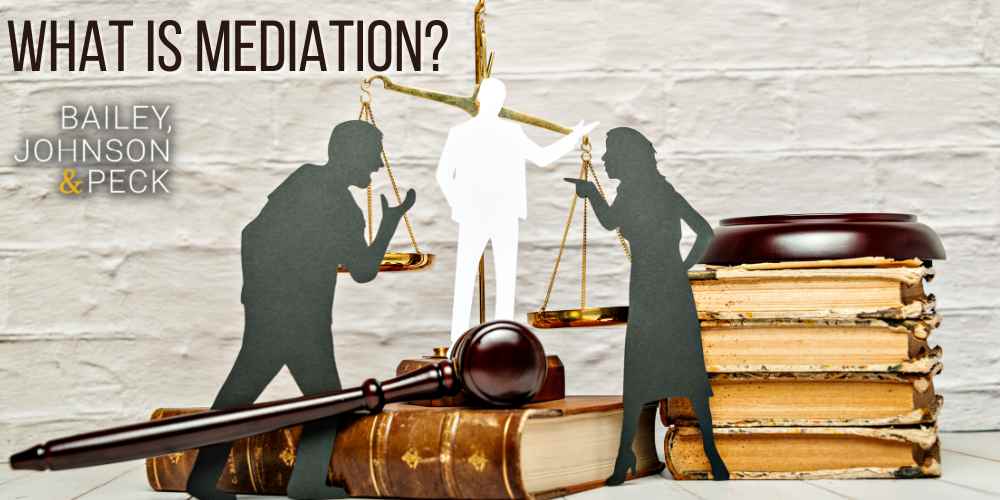Legal disputes can be lengthy, costly, and emotionally draining. In such cases, a mediation session with experienced lawyers can offer a path to resolution that can save time, reduce costs, and provide more control over the outcome to the parties involved. If you’re enduring civil litigation, you may benefit from resolving concerns with a neutral person – also known as a mediator. But what is mediation?
A mediated agreement can be the quick, easy, and affordable solution you need to resolve your legal dispute. Call our Albany personal injury attorneys at 518-456-0082 today for more information on whether your claim would benefit from a mediation program.
What is Mediation in Law?
So, what is mediation in the context of the law? Mediation is a dispute resolution process in which an impartial person, called a mediator, facilitates communication between parties to promote reconciliation, settlement, or understanding in a confidential setting. Unlike a judge or arbitrator, a mediator does not have the authority to make binding decisions but instead works to help the parties decide on a mutually acceptable outcome to their conflict through mediation.
What is Alternative Dispute Resolution?
Before further delving into ‘what is mediation’, it’s important to understand the broader category called Alternative Dispute Resolution (ADR). ADR is a collection of processes used to resolve conflicts or concerns informally and confidentially. ADR provides alternatives to traditional legal processes where the judge or jury makes the final decision, such as litigation, with court-ordered mediation as a primary form.

Types of Mediation in New York
This encompasses various methods that allow disputing parties to resolve their conflicts or concerns outside the traditional courtroom setting.
The most common type of ADR is mediation. What is mediation? This is where a neutral third party, called a mediator, helps two parties reach mutually acceptable solutions for legal concerns.
The next type is arbitration, where an arbitrator listens to both sides and makes a binding decision; then, negotiation, a joint session between parties to settle the dispute without the involvement of a third party.
Other less common forms of ADR include conciliation, similar to mediation, but the conciliator may offer legal advice and find solutions; and collaborative law, where both parties and attorneys commit to reaching an agreement without involving the courts.
At Bailey, Johnson & Peck, we can help you determine which method can best assist with your civil case.
What is a Mediator?
Common examples of mediators include:
Lawyers are often used as a mediator to reach an agreement outside the courts.
This type of mediator includes experts in a specific field (like healthcare or construction) who can provide specialized knowledge in the joint session.
A mediator who has previously served on the bench can present insights into how a court might view the case to promote a better outcome for each person.
A mediator who’s focus is on resolving a local or smaller-scale conflict.
Each type of mediator brings unique benefits to the mediation process and can be chosen based on the specific needs of the conflict or dispute.
Mediation Process Steps in New York
Now that we’ve explained ‘what is mediation?’, let’s dive into the mediation process. The mediation process typically involves:
The parties meet in a joint session with their neutral third party and outline the issues from their perspective.
The parties communicate their interests and what they hope to achieve from the mediation.
Parties share information about the dispute to ensure informed decision-making.
With the help of the mediator, parties are encouraged to generate options for a settlement or written agreement.
The mediator assists the parties in reaching an agreement by clarifying issues and evaluating options.
When mediation agreements are reached, they’re is put in writing. If not, the parties decide whether to continue mediation or pursue other options, such as a lawsuit or civil litigation.
The mediation process can take a few days to a few weeks, depending on the complexity of the case and the people involved.
Benefits of a Mediation Session

Mediation Costs are Less Expensive and Faster
Mediated discussions with a mediator are much less expensive than going to court. The mediation process can often be achieved faster than a court proceeding.
Mediation Remains Confidential
Confidentiality is a major benefit of mediation for those participating. Unlike court cases, mediation remains confidential. Any information disclosed by disputing parties is considered confidential in a mediation session.
Mediation Makes Both Parties The Decision Maker
Both parties can maintain more control over the outcome of their dispute. The mediator helps parties agree to creative solutions to their conflicts. Mediation works by understanding the concerns of both parties and ensuring one party is in an equal position to the other party.
Mediations can result in creative solutions that are more tailored to the parties’ specific needs.
Mediation Works to Preserve Relationships
The mediation process fosters a more amicable environment, which can preserve an important personal or business relationship.
When Should I Choose Mediation?
You may wonder, ‘at what point should I resort to mediation?’ Various factors can influence the decision to mediate:
Mediation is best suited when both parties are willing to engage in a respectful and productive conversation to gain a better understanding.
Parties are encouraged and should be willing to discuss a settlement or reach an agreement to their conflict. If not, the parties may have to resort to a court case.
Mediation can be the best option when parties need or want a quicker outcome than courts might provide.
If parties desire private communication in their conflict, they may benefit greatly from the mediation process.
Legal Cases That Can Be Resolved Through a Flexible Dispute Resolution Process
Now – what types of civil cases can be resolved through a mediation process?
In personal injury cases – disputing parties seeking a creative solutions for damages incurred due to accidents, negligence, or intentional harm – mediation might occur after initial investigations and exchanging information but prior to a full-fledged court battle ensues. Additionally, mediation is frequently used in family law matters, such as divorce and child custody, which is beneficial in preserving a relationship after mediation agreements.
When our Albany employment lawyers handle labor and employment concerns, including discrimination, wrongful termination cases, and workplace sexual harassment claims in Albany, NY, clients often can come to a mediated agreement.
Our Albany employment contract attorney team handles other types of business and commercial conflicts, such as partnership dissolutions, dispute in contract terms, and intellectual property disagreements, also benefit from mediation, as it encourages preserving professional relationships and confidentiality.
Even complex civil matters, including real estate disputes and environmental litigation, can find successful outcomes through the structured yet flexible mediation process, especially with the help of Albany environmental lawyers.
At Bailey, Johnson & Peck, we leverage the versatility of mediation to address the unique facets of our clients’ cases, seeking outcomes that serve their best interests while minimizing the stress and cost of traditional civil litigation.

What Happens After Mediation?
Post-mediation, there are typically two outcomes:
Settlement: If parties agree, it’s drafted into a settlement agreement, which becomes a binding, enforcable contract.
No Settlement: If mediation doesn’t result in a settlement agreement, parties may proceed with a court case, though they can still return to mediation later if they wish.
The role of a skilled personal injury attorney is crucial in navigating the mediation process and post-mediation steps to reach a written agreement.
Attorneys Who Use Mediation in Albany, NY
At Bailey, Johnson & Peck, we understand the nuances of personal injury law and the complex emotions involved in such disputes. Our experience with mediation means a mediator from our firm can effectively guide you through the process of mediation while aggressively advocating for your best interests.
If you’re in Albany, New York, and considering mediation for your civil case, contact a mediator at our firm today to discuss your mediation options and the potential for a favorable resolution without needing a trial. Our expertise is in litigation and achieving results for our clients as efficiently and effectively as possible, including through mediation.
Call 518-456-0082 to schedule a free consultation at Bailey, Johnson & Peck today.




